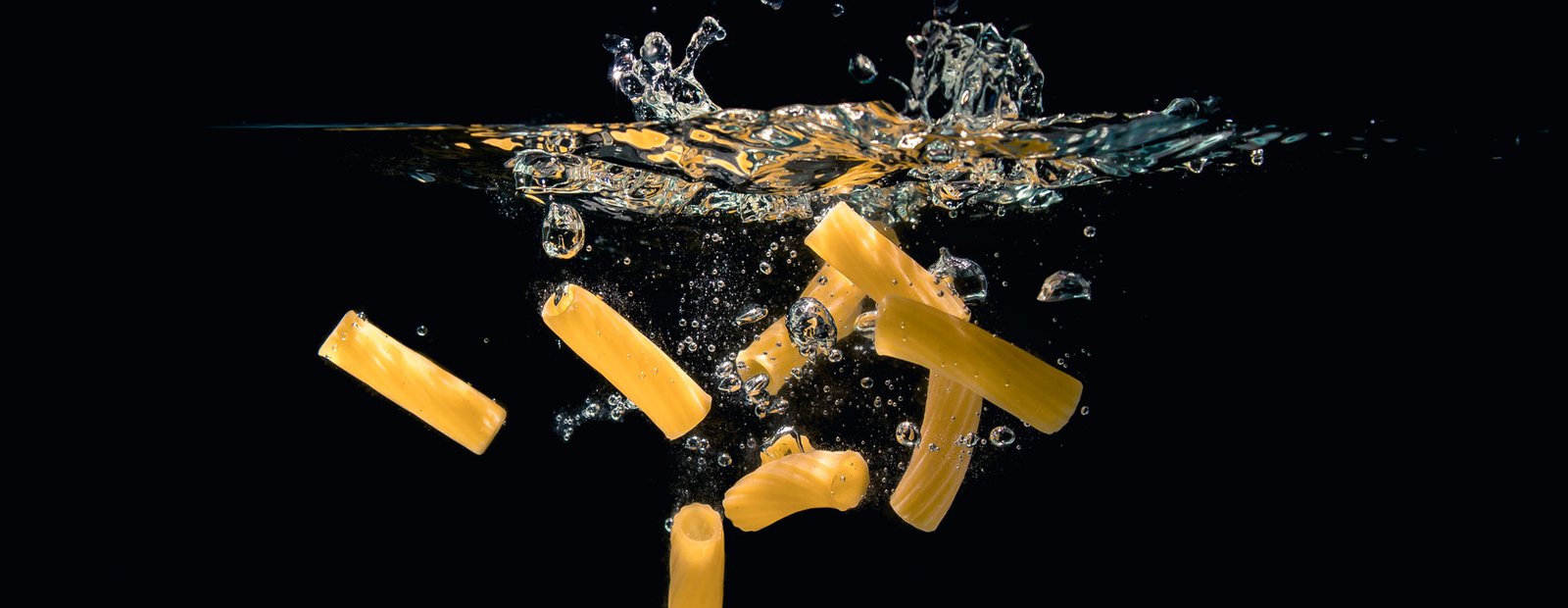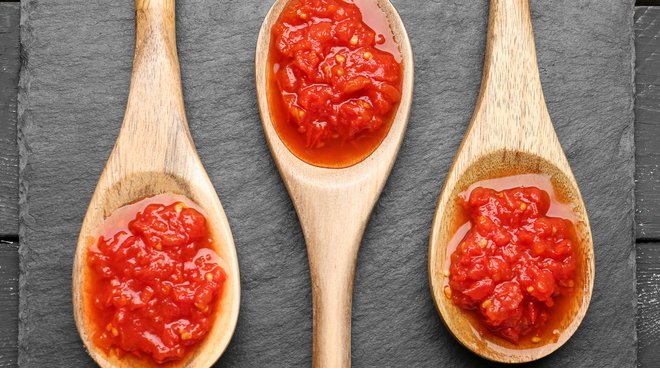Pulp, Passata and Related Products
SCIUÉ SCIUÉ MACCHERONI... FOR A NEW LEASE ON LIFE!
Sciué Sciué "in the Neapolitan dialect means a way of being that is unpolished and unrefined, superficial and inaccurate....

Sciué Sciué "in the Neapolitan dialect means a way of being that is unpolished and unrefined, superficial and inaccurate....
Translated into the kitchen, it becomes something simple, fast, not very elaborate, prepared using only a few ingredients, possibly leftovers, natural and genuine.
A straightforward dish, super-fast! A quick but very tasty preparation.
Maccheroni, spaghetti and penne are the preferred pasta. The essential element, one that cannot be missed, is tomato that rules like a king over this classic dish of the Neapolitan cuisine!
"Sciué Sciué "is the ideal dish for dynamic people, who are in a hurry but do not want to give up the pleasures of the table.
The secret is to prepare a fast sauce with a slightly sautéed and good tomato sauce.
Sciué Sciué is «’o maccarone se magna guardanno ‘ncielo».
This is what Ferdinand IV of Bourbon said, a royal fan of pasta who did not feel ashamed of eating it with his hands, like the common people, but with his eyes turned to heavens, contemplating its deliciousness.
Sciué Sciué is an ancient street food, fast yet healthy.
It was in the eighteenth century that the custom of cooking and selling pasta in the streets of Naples on board itinerant carts became widespread. They were the early versions of modern food trucks. This is confirmed by the travel diaries of the many intellectuals - from Goethe to Virginia Woolf - when busy in completing their Grand European Tour and the unmissable " Italian journey".
Perhaps it was due to these aristocratic and literary travelers that the reputation of Italians as "mangiapasta" or "macaroni eaters" became known, a reputation that later established itself in Italian and foreign cinema giving rise to interesting cooperation, such as the one between Jack Lemmon and Marcello Mastroianni, for the first time together on the set of "Maccheroni" by Ettore Scola (1985).
"Maccheroni" in the movies
Jack Lemmon (Robert Traven) is an important US manager traveling to Naples on business. Mastroianni (Antonio Jasiello) is a humble employee. Robert, in Naples during the Second World War, had fallen in love with Antonio's sister who, 40 years later, visits him at the hotel to meet him.
Robert is greeted by the Jasiello family and all their Neapolitan warmth.
These are funny days, full of tragicomic misadventures and loving memories, until Antonio suddenly dies (for the third time in his life). At the wake, steaming maccheroni are served, so inviting that Antonio rises back to life on time, at lunchtime, to enjoy the pasta dish.
NEWS
ALSO IN FOOD TRENDS
Pulp, Passata and Related Products
The history of tomato sauce: Arab and Italian traditions
Tomato sauce is undoubtedly one of the most emblematic ingredients of Italian cuisine, but its history actually has its roots in much older cultures and traditions. This condiment, which today represents the essence of Mediterranean cuisine, has a past linked to both Arab and Italian traditions.
Pulp, Passata and Related Products
Spicy tomato sauce: how to make it at home with Pomì
Spicy tomato sauce is loved all over the world, as it is capable of giving life and character to any type of dish: from simple starters to meat dishes and, of course, Italian pasta recipes.
Pulp, Passata and Related Products
Tomato soup: a journey of taste through Italy
Tomato soup is more than just a dish: it is a real symbol of Italian cuisine.


